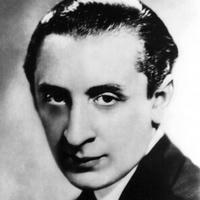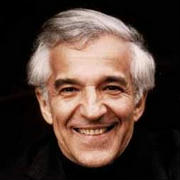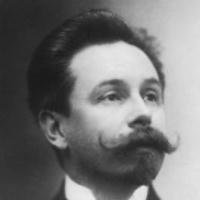Alexander Nikolayevich Scriabin (/skriˈɑːbɪn/; Russian: Александр Николаевич Скрябин [ɐlʲɪˈksandr nʲɪkəˈɫaɪvʲɪtɕ ˈskrʲæbʲɪn]; 6 January 1872 [O.S. 25 December 1871] – 27 April [O.S. 14 April] 1915) was a Russian composer and pianist. In his early years he was greatly influenced by the music of Frédéric Chopin, and wrote works in a relatively tonal, late Romantic idiom. Later, and independently of his highly influential contemporary, Arnold Schoenberg, Scriabin developed a substantially atonal and much more dissonant musical language, which accorded with his personal brand of metaphysics. Scriabin was influenced by synesthesia, and associated colours with the various harmonic tones of his atonal scale, while his colour-coded circle of fifths was also influenced by theosophy. He is considered by some to be the main Russian Symbolist composer.
Scriabin was one of the most innovative and most controversial of early modern composers. The Great Soviet Encyclopedia said of Scriabin that "no composer has had more scorn heaped on him or greater love bestowed." Leo Tolstoy described Scriabin's music as "a sincere expression of genius." Scriabin's oeuvre exerted a salient influence on the music world over time, and influenced composers such as Igor Stravinsky, Sergei Prokofiev, and Karol Szymanowski. However, Scriabin's importance in the Russian and then Soviet musical scene, and internationally, drastically declined after his death. According to his biographer Bowers, "No one was more famous during their lifetime, and few were more quickly ignored after death." Nevertheless, his musical aesthetics have been reevaluated since the 1970s, and his ten published sonatas for piano and other works have been increasingly championed, garnering significant acclaim in recent years.










